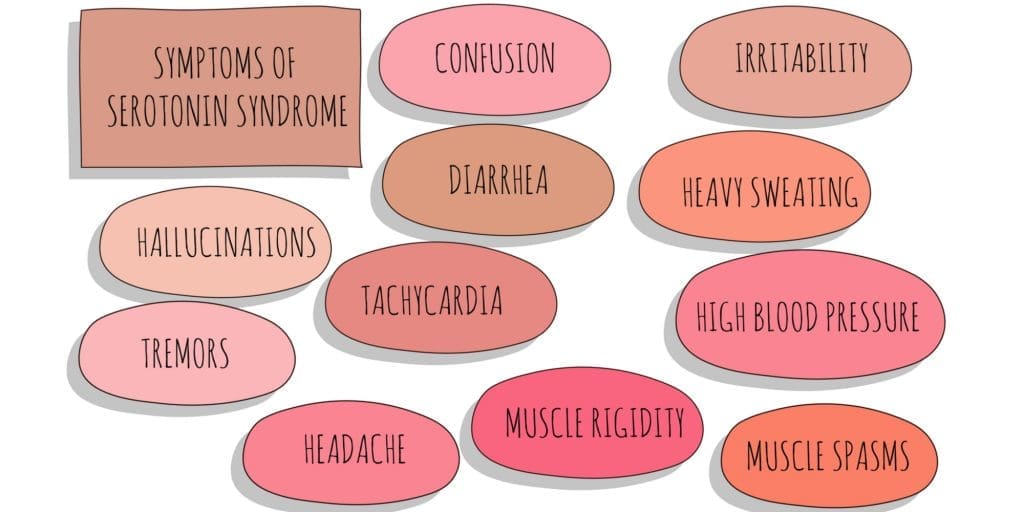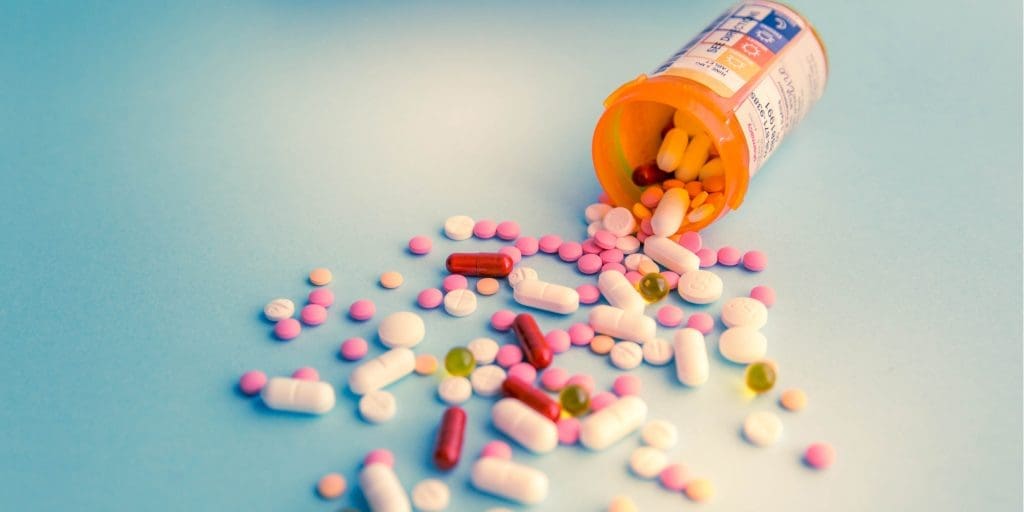Serotonin is a naturally occurring chemical in the body that acts as a neurotransmitter, or a messenger between nerve cells. And the role of serotonin is important. Serotonin manages mood and memory as well as assists in sleep, digestion, sexual function, blood clotting, and more. However, too much serotonin can result in mild serotonin syndrome or more severe serotonin toxicity.
The body requires certain serotonin levels to function properly. When a person does not have enough of this chemical, problems can arise. In fact, low serotonin symptoms are thought to include ailments such as the following:
- Depression
- Anxiety
- Insomnia
- Reduced appetite
- Irritability
- Impulsivity
It is important to recognize that serotonin does not work alone to produce these conditions. However, it does play an important role. When prescription medications or over-the-counter serotonin supplements are taken in an effort to increase serotonin, the result can be too much serotonin within a person’s system.
Contents
What Is Serotonin Syndrome?

Simply put, serotonin syndrome is the result of too much serotonin in the body. In general, this does not happen naturally. Rather, serotonin toxicity is the result of a medication or a combination of medications that cause a surplus of serotonin. The condition can range from mild to life-threatening and can be challenging to diagnose.
Mild serotonin syndrome especially is a condition that is often overlooked. This is due to the fact that symptoms of mild serotonin syndrome are shared among many other conditions. Further, there is no lab test to confirm the diagnosis of this condition. Rather lab tests are generally used to rule out other medical problems. Unfortunately, mild serotonin toxicity can progress rapidly, especially if the medication causing the problem is not immediately stopped. For this reason, it is vital to catch symptoms early before a more serious condition develops.
Serotonin Syndrome Symptoms
The onset of serotonin syndrome can happen quickly. A person may experience symptoms within a few hours of taking the medication that alters serotonin levels. Therefore, simple awareness of the condition and of the medications you’re taking could go a long way in recognizing the signs of mild or more severe serotonin syndrome symptoms.
Mild serotonin syndrome symptoms often includes the following:
- Shivering and tremors
- Twitching or involuntary muscle movements
- Excessive sweating
- Dilated pupils
- Rapid heartbeat
- Slightly elevated blood pressure
Given the prevalence of these symptoms among other diseases and ailments, it is easy to see how the signs of mild serotonin syndrome can be overlooked.
More severe signs of serotonin syndrome include:
- Fever
- Anxiety
- Confusion
- Agitation
- Varying heart rate or blood pressure
- Delirium
- Muscle rigidity
- Restlessness
- Profuse sweating
- Seizures
If the above symptoms are noted in any individual, it is important to call 911 immediately as serotonin syndrome can be fatal if not treated. Usually, the doctor will eliminate the presence of other conditions first. Other conditions that can be confused with serotonin syndromes include infections (i.e. meningitis), neuroleptic malignant syndrome, reactions to substance abuse, and drug withdrawal.
Serotonin Syndrome Causes: Serotonergic Agents

Serotonergic agents are substances that alter serotonin levels in the body. Oftentimes, a person is prescribed a serotonergic agent to address a mental illness such as depression. Examples of serotonergic agents include antidepressants such as:
- Monoamine oxidase inhibitors (MAOIs) (i.e., Selegiline or Nardil)
- Selective serotonin reuptake inhibitors (SSRIs) (i.e., Paxil and Prozac)
- Serotonin and norepinephrine reuptake inhibitors (SNRIs) (i.e., Pristiq and Cymbalta)
- Tricyclic antidepressants (i.e, amitriptyline and nortriptyline)
- Atypical antidepressants (i.e., Wellbutrin)
In addition, many prescription drugs and over-the-counter remedies can cause an increase in serotonin levels. While serotonin syndrome may occur after taking a single medication, this is unlikely. Rather, it is usually the result of a combination of products that increase serotonin or alters serotonin uptake. Alternatively, someone may intentionally or accidentally take too much of the same medication causing a serotonin overdose.
Examples of other serotonergic drugs that pose a danger if they are combined serotonin increasing drugs include:
- Opioids (i.e., Vicodin)
- Amphetamines (i.e., Adderall)
- Herbal supplements (i.e. St. John’s wort)
- L-Tryptophan
- Illegal drugs (i.e., ecstasy, fentanyl, LSD)
- Cough medicine containing dextromethorphan (DXM)
- Anticonvulsants (i.e., Tegretol)
- Lithium
To avoid severe serotonin toxicity, It is important to be vigilant of symptoms of mild serotonin syndrome when switching medications, increasing dosages, or beginning a new medication.
Serotonin Syndrome Treatment
Fortunately, mild serotonin syndrome will resolve when the medication is stopped or corrected. And usually, mild serotonin syndrome recovery takes anywhere from one to three days. However, if mild serotonin toxicity is not caught it could progress very quickly, resulting in a medical emergency. Treatment for severe symptoms of serotonin toxicity includes immediate cessation of serotonergic drugs and drugs like benzodiazepines may be administered to relieve any muscular symptoms.
One of the best things you can do is be aware of your prescriptions and supplements, especially if you have a condition like depression that requires one of the products that alters serotonin. Alternatively, using these medications in conjunction with recreational drug use or combining serotonin-enhancing prescriptions with illegal drugs will elevate the risk of serotonin overdose. Fortunately, with some minor adjustments, mild serotonin symptoms can be managed. In addition, help with addiction and other co-occurring mental ailments is available.
Help with Mental Illness and Addiction in South Florida
Mental illnesses that require medications to adjust serotonin levels are common. However, these medications should not be combined with recreational drug use. If you are struggling with mental illness, an accredited mental health facility can help with treatment options including adjustments to medication. Further, through a dual diagnosis program, mental health treatment can address any co-occurring problems with substance abuse. At Port St. Lucie Hospital in Southeast Florida, our mental health treatment center offers numerous programs to help you get back to feeling great. In addition to those above, these include:
To learn more about our Florida mental health services, contact our admissions specialists at (772) 335-0400 or submit your questions online through our confidential contact form. At Port St Lucie hospital we can help you start recovering today.
FAQ Regarding Serotonin Syndrome
Serotonin syndrome, or serotonin toxicity, is an excess of serotonin in the body.
Generally, mild and more severe cases of serotonin syndrome is caused by taking too much medication (or a combination of medications) that alter serotonin levels. For example, taking a combination of antidepressants, or taking antidpressants with pain pills may increase the risk of serotonin syndrome.
Serotonin syndrome is not often reported. However, this condition is thought to be commonly overlooked and may therefore be underdiagnosed.
Symptoms of mild serotonin symptoms are easy to miss, so it is important to be aware of the medications that can cause this condition. In general, symptoms may include tremors or involuntary muscle movements, excessive sweating, changes in blood pressure and heart rate, pupil dilation, fever, anxiety, confusion, and ultimately, seizures.
The length of serotonin syndrome depends on the severity of the case. Mild serotonin syndrome will resolve on its own within a few days as long as the medication causing the problems is stopped. More severe cases will require medical attention and may take a week or longer to resolve.


























